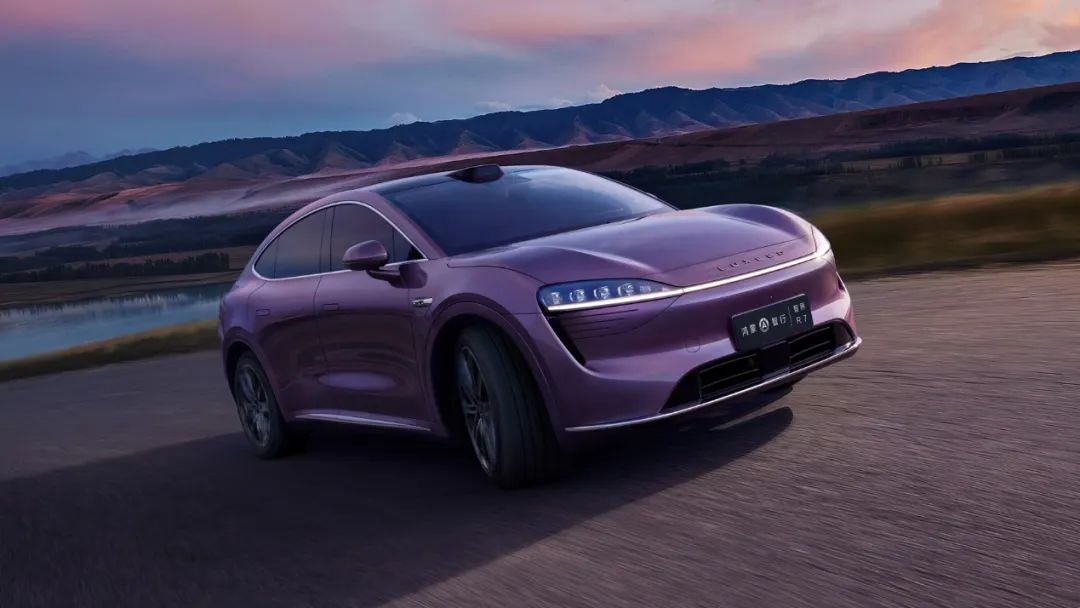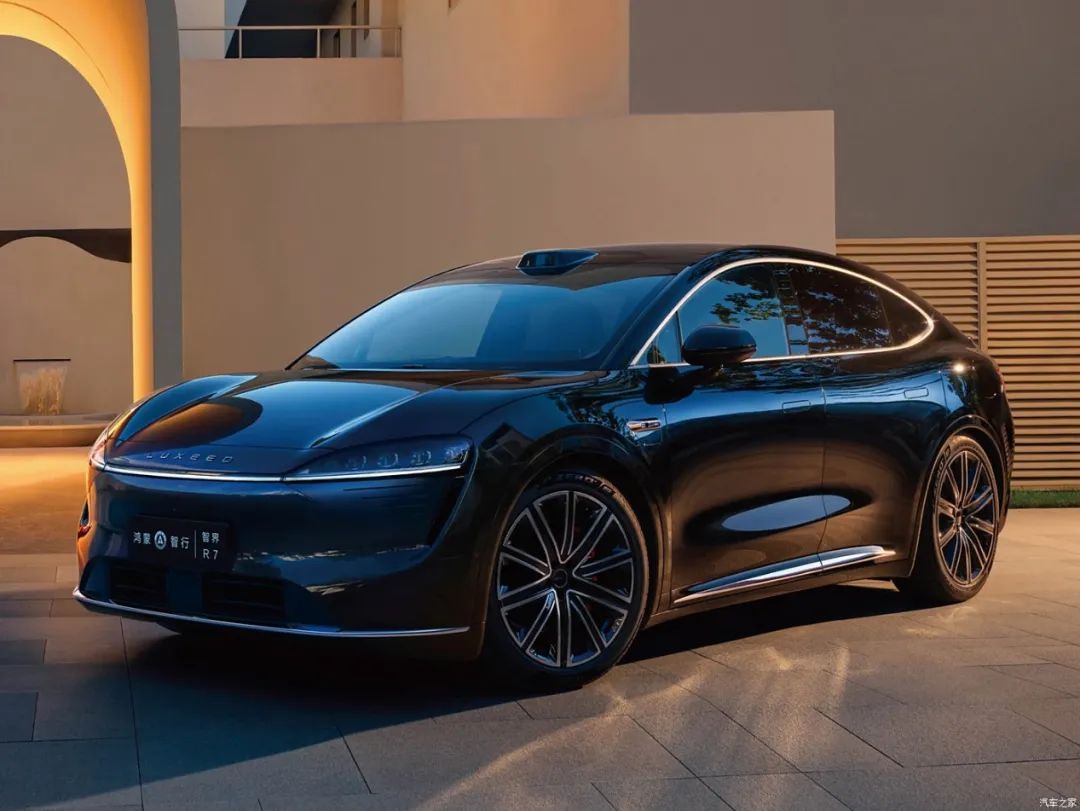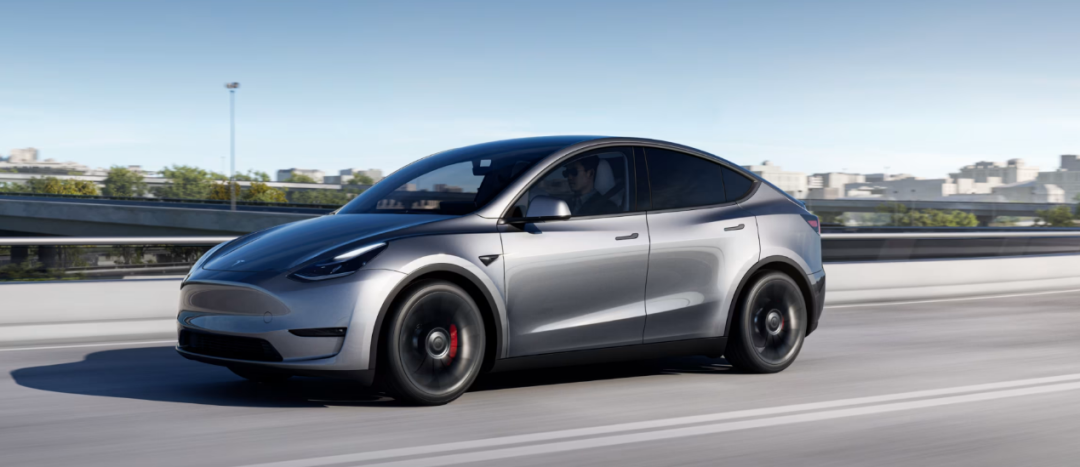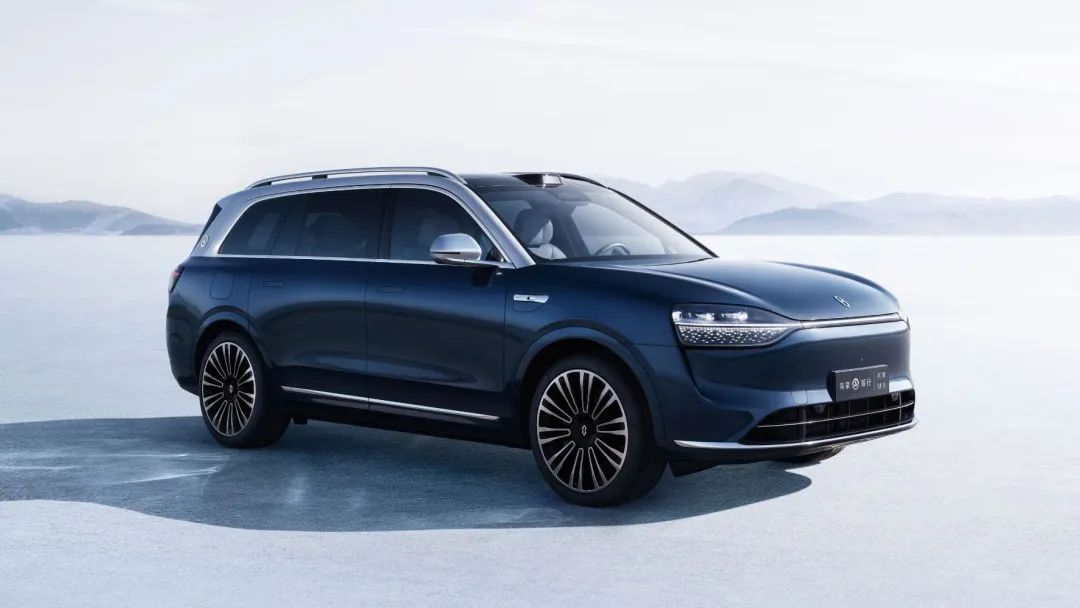Is Zhijie R7 an 'industrial Frankenstein' or the strongest competitor of Tesla Model Y?
![]() 10/21 2024
10/21 2024
![]() 570
570
Lead
Recently, Zhijie, jointly created by Chery and Huawei, released its latest sales report. Hongmeng Zhixing's first coupe SUV, Zhijie R7, has accumulated more than 20,000 orders in just 14 days since its launch, close to half of Tesla Model Y's September sales of 48,000 units. Zhijie R7's direct competitor is undoubtedly Tesla Model Y, the best-selling electric SUV in China. When this model was unveiled, Huawei's Yu Chengdong confidently stated that Tesla Model Y's challenger had arrived.
Produced by | Heyan Yueche Studio
Written by | Cai Jialun
Edited by | Heyan Studio
Total words: 1745
Reading time: 3 minutes
Can Zhijie perfectly replicate the success of Wenjie? This is likely a question that Yu Chengdong has been pondering recently. Previously, Yu Chengdong stated that Zhijie R7 was built to the standard of a $1 million car, with a loss of 30,000 yuan per vehicle sold. This rhetoric of 'losing money to make a noise' is often used in the promotion of new cars by new automotive players. Is Zhijie R7 simply a 'industrial Frankenstein' assembled from various hardware components, or is it a unique product that sets itself apart from Huawei-affiliated models? Perhaps only after more users have experienced it can a definitive answer be given.

△Does Zhijie R7 truly have the capability to compete with Tesla Model Y?
Rivaling Tesla Model Y?
Zhijie R7 has consistently positioned Tesla Model Y as its competitor. The former is the second product jointly launched by Huawei and Chery, while the latter is consistently ranked as the top-selling pure electric SUV in the market. At the launch of Zhijie R7, Yu Chengdong deliberately highlighted its advantages over Tesla Model Y when introducing various aspects of the new car, seemingly justifying the higher starting price of Zhijie R7 by $10,000 compared to Tesla Model Y. As a pure electric SUV, Zhijie R7 primarily benchmarks against Tesla Model Y in terms of range and intelligent systems.
In terms of range, Zhijie R7 comes standard with Huawei's Whale 800V high-voltage battery platform, offering a maximum range of 802km, which is indeed an advantage over Tesla's maximum range of 688km. Although Zhijie R7's high-voltage charging platform is faster than Tesla's, it is not 'far ahead' among domestic new automotive players, as companies like XPeng, Xiaomi, and ZM-EV have long introduced 800V high-voltage platforms. Therefore, Zhijie R7 chose not to compete head-on with these 'peers' but instead targeted Tesla Model Y.

△Zhijie R7's 800V high-voltage battery platform is not 'far ahead'
As a member of Huawei's 'Hongmeng Zhixing' ecosystem, advanced intelligent driving is the core focus of Zhijie R7's promotion. However, the entry-level model only comes with ADS basic intelligent driving and lacks lidar and advanced intelligent driving capabilities. The 299,800 yuan Zhijie R7 Max, on the other hand, is equipped with Huawei's ADS 3.0 advanced intelligent driving system, pioneering the use of an end-to-end new architecture. The value of Huawei's ADS 3.0 advanced intelligent driving system speaks for itself, with capabilities ranging from simple scene recognition to scene understanding, active safety, smart parking, and valet parking, all reaching a high standard.
However, Tesla already pushed its first FSD equipped with an 'end-to-end neural network model' earlier this year. Previously, Tesla announced on media platforms that FSD will enter the Chinese market in the first quarter of next year. Whether Huawei's intelligent driving advantages can be maintained by then remains to be seen. While Zhijie R7 benchmarks against Tesla Model Y as a pure electric SUV, actually surpassing such a formidable competitor in sales will be extremely challenging. Zhijie R7's most prominent feature compared to other similarly priced competitors is its Huawei empowerment. If more Huawei-affiliated new cars are released in the future, how much of Zhijie R7's unique selling proposition will remain?

△Tesla Model Y's intelligent driving capabilities are comparable to Zhijie R7
Can Huawei-affiliated cars withstand the competition?
Driven by the trend of automotive electrification and intelligence, an increasing number of new automotive players have emerged. Various automakers have continued to make breakthroughs in intelligent driving and smart cockpits, with more Internet companies collaborating with automakers. Can Huawei-affiliated smart cars still hold their own in this environment? In terms of sales, Huawei's Hongmeng Zhixing delivered 39,931 new vehicles across its entire lineup in September, ranking second only to NIO among new automotive players. The Wenjie series was the main sales driver, delivering 35,560 new vehicles in September. The sales performance of other Hongmeng Zhixing models pales in comparison to Wenjie, with the smart flagship sedan Xiangjie S9 delivering over 2,169 units and Zhijie R7 receiving over 11,000 orders. Clearly, Wenjie remains the standout among Huawei-affiliated models. As the earliest brand empowered by Huawei, it is deeply integrated with the Huawei brand, both in terms of promotion and product development. It enjoys the support of Huawei's loyal fans. However, subsequent brands that have joined the Huawei family have exposed some issues, such as overly homogenized body designs and identical intelligent systems with Wenjie, making brands like Xiangjie and Zhijie less appealing.
For an automotive brand, losing its unique selling proposition is undoubtedly fatal. Will consumers still buy Huawei-empowered automotive brands after stripping away the Huawei label? Although Huawei-affiliated smart cars still performed well in sales in 2024, Wenjie's luster has overshadowed subsequent brands. With companies like XPeng, NIO, and Xiaomi catching up furiously in intelligent driving systems, the pressure on Huawei-affiliated new cars is considerable.

△Wenjie emerges as the sales leader in the Hongmeng Zhixing camp
Commentary
Although Zhijie R7 has made a strong start, it cannot afford to be complacent. The production capacity challenge faced by Huawei and Chery is a significant hurdle. Previously, the first product jointly launched by Huawei and Chery, Zhijie S7, experienced delivery issues due to production capacity constraints, leading to a significant decline in sales after the initial hype subsided. Now that Zhijie R7 has received a considerable number of orders, have Huawei and Chery made sufficient preparations to ensure that this new car can truly challenge Model Y?
(This article is originally created by 'Heyan Yueche' and may not be reproduced without authorization.)






